Normal Space Worksheets for Ages 6-8
35 filtered results
-
From - To
Discover our engaging Normal Space Worksheets, designed specifically for children aged 6-8! These resources encourage young learners to explore the wonders of space while developing essential skills in science and literacy. Our printable worksheets include exciting activities on topics such as the solar system, planets, and celestial bodies, fostering curiosity and creativity. Each worksheet is tailored to match younger students' learning styles, ensuring they grasp complex concepts through fun and interactive exercises. Perfect for home or classroom use, these worksheets provide a fantastic foundation for early scientific understanding. Download your set today and ignite your child's interest in the cosmos!
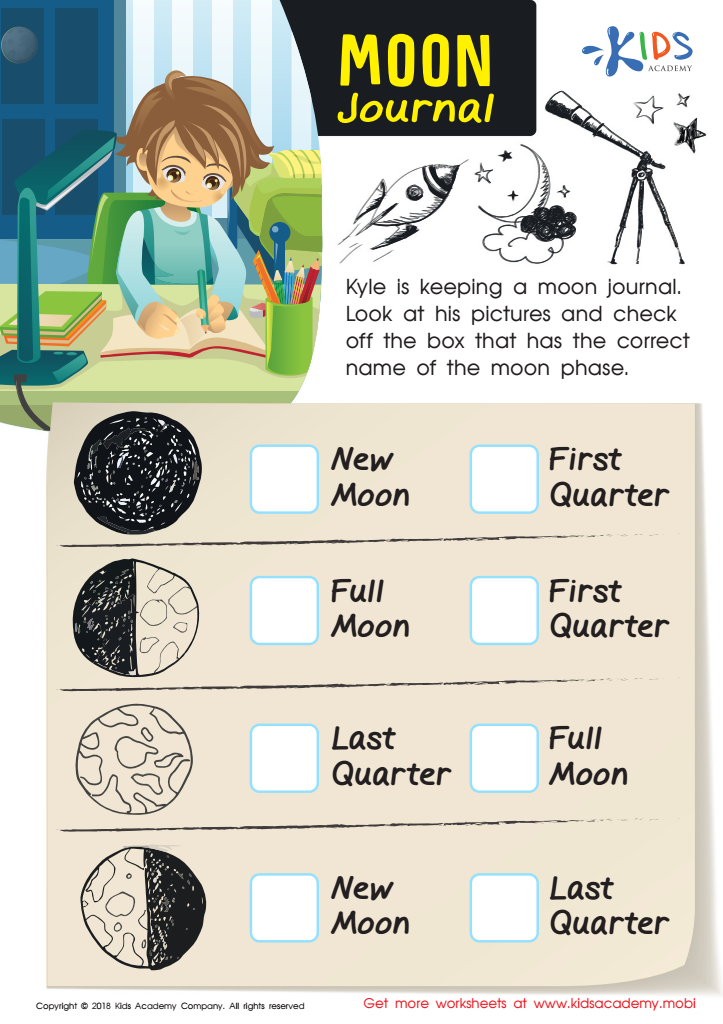

Moon Journal Worksheet
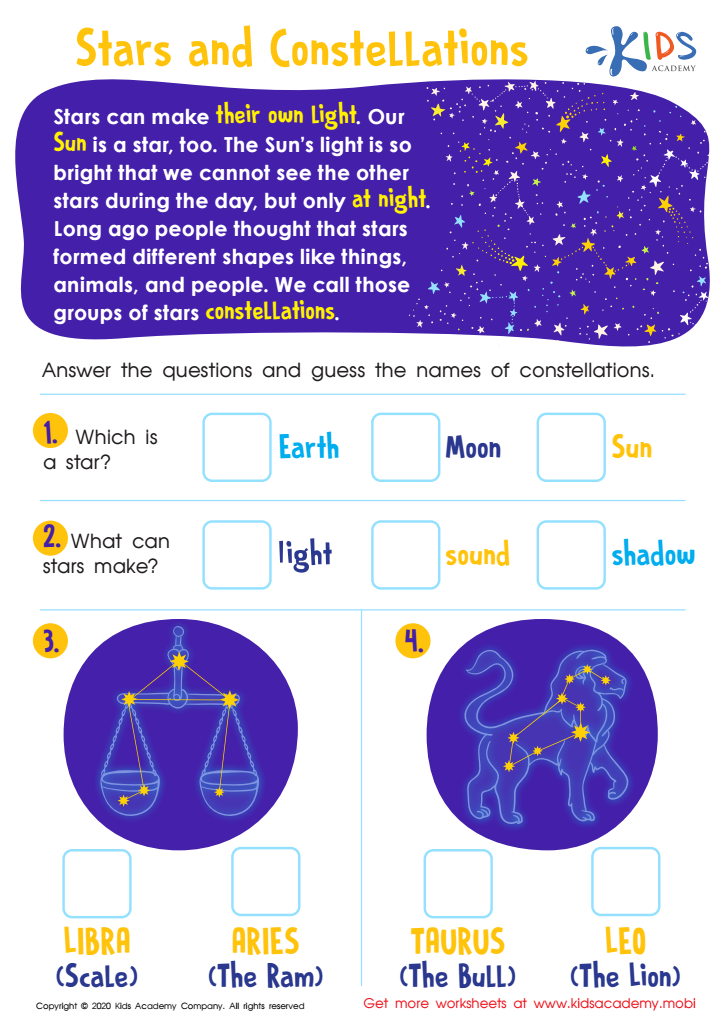

Stars and Constellations Worksheet
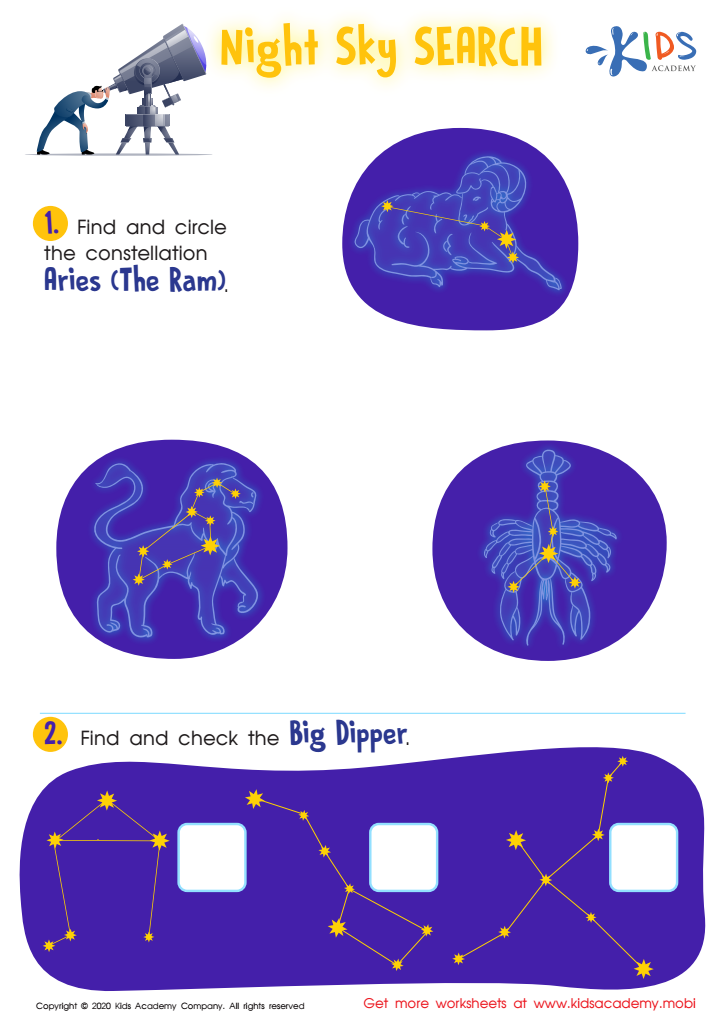

Night Sky Search Worksheet
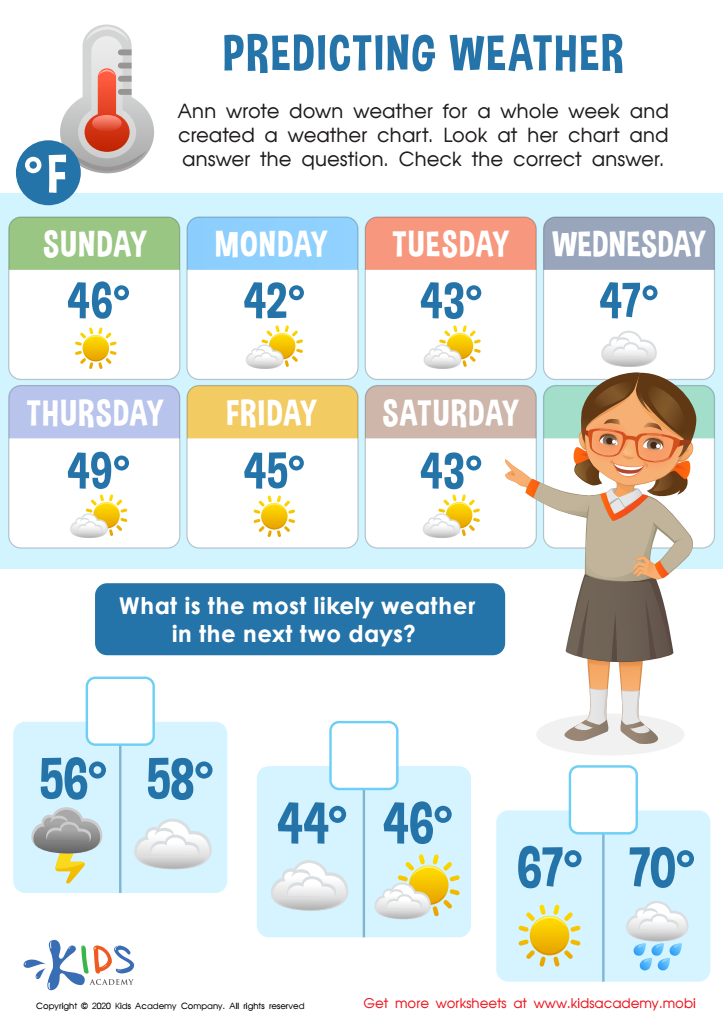

Predicting Weather Worksheet
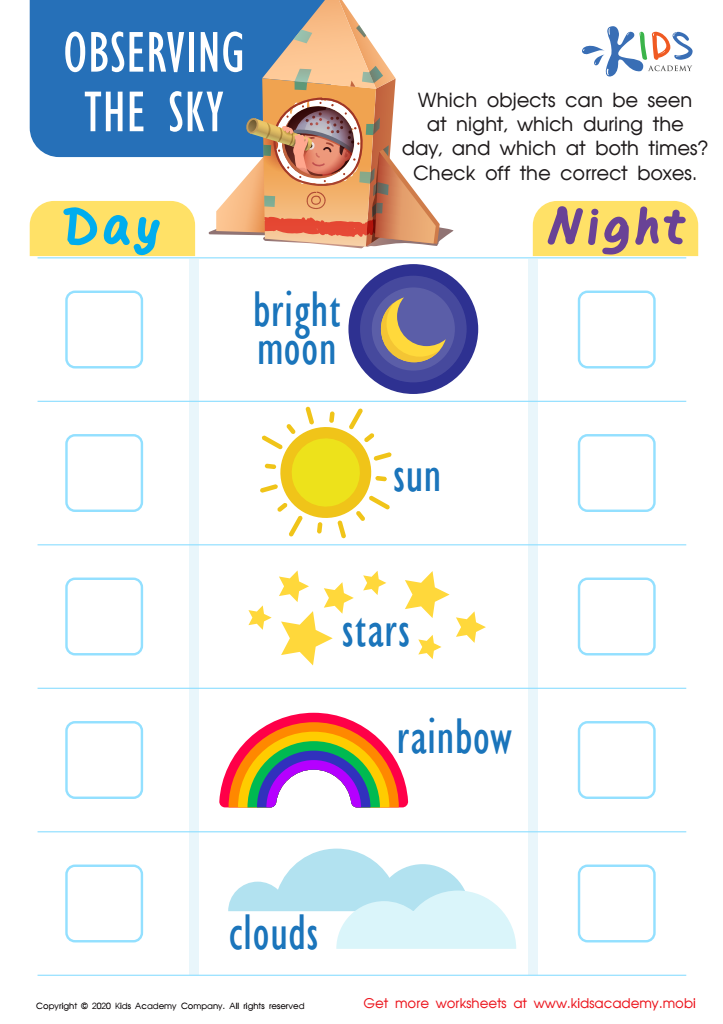

Observing the Sky Worksheet


Space: Assessment 2 Worksheet


Space: Assessment 1 Worksheet
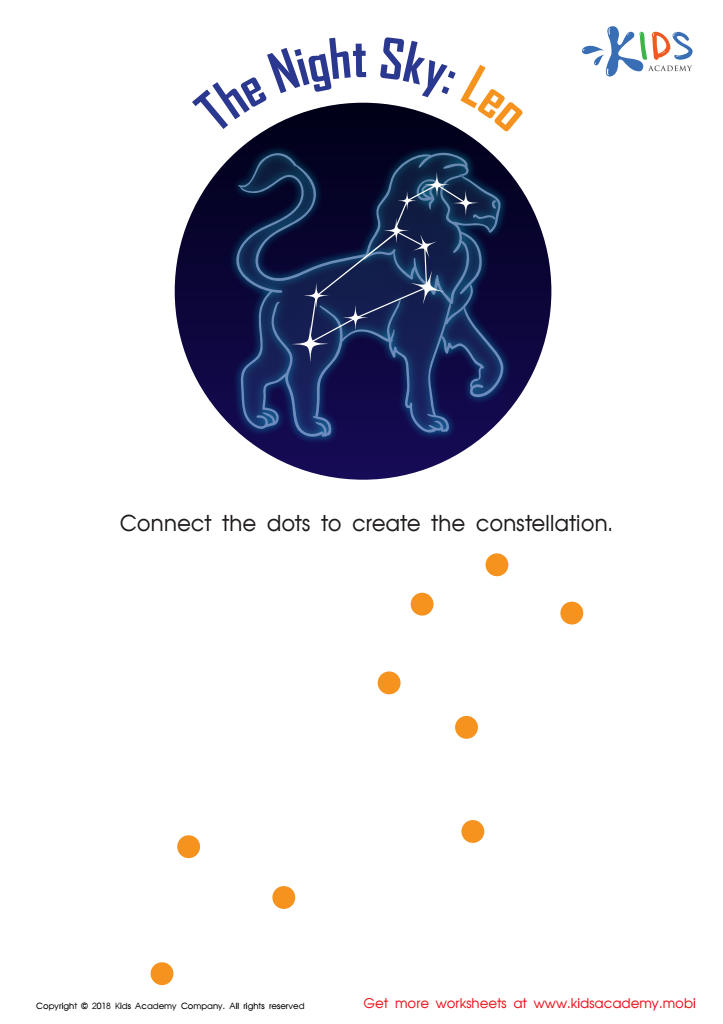

The Night Sky: Leo Worksheet
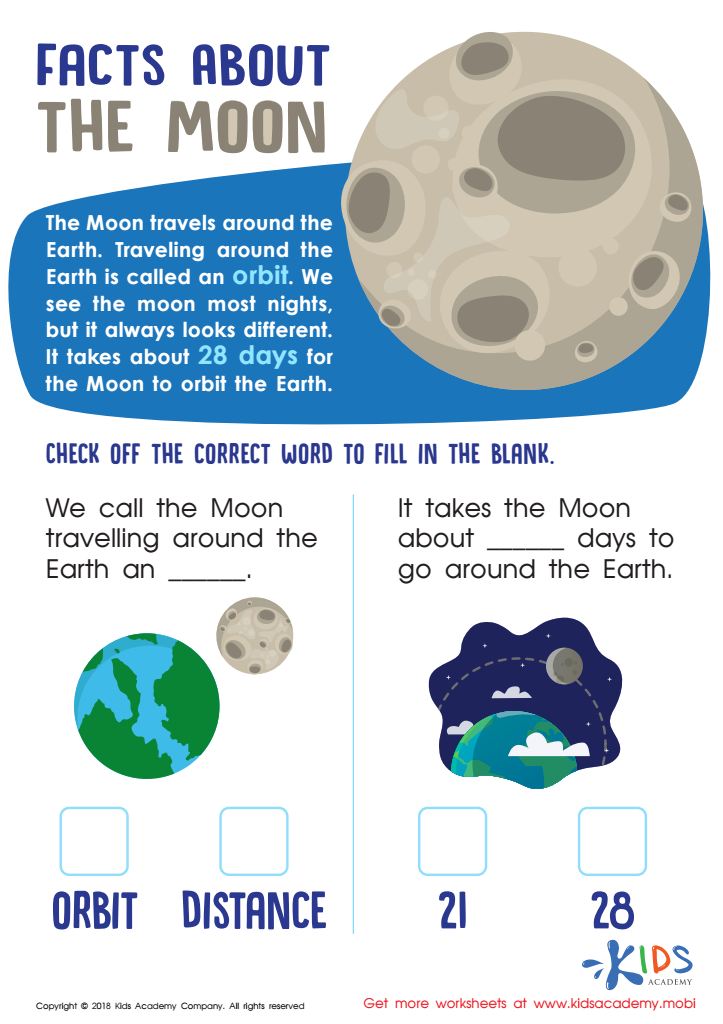

Facts About the Moon Worksheet
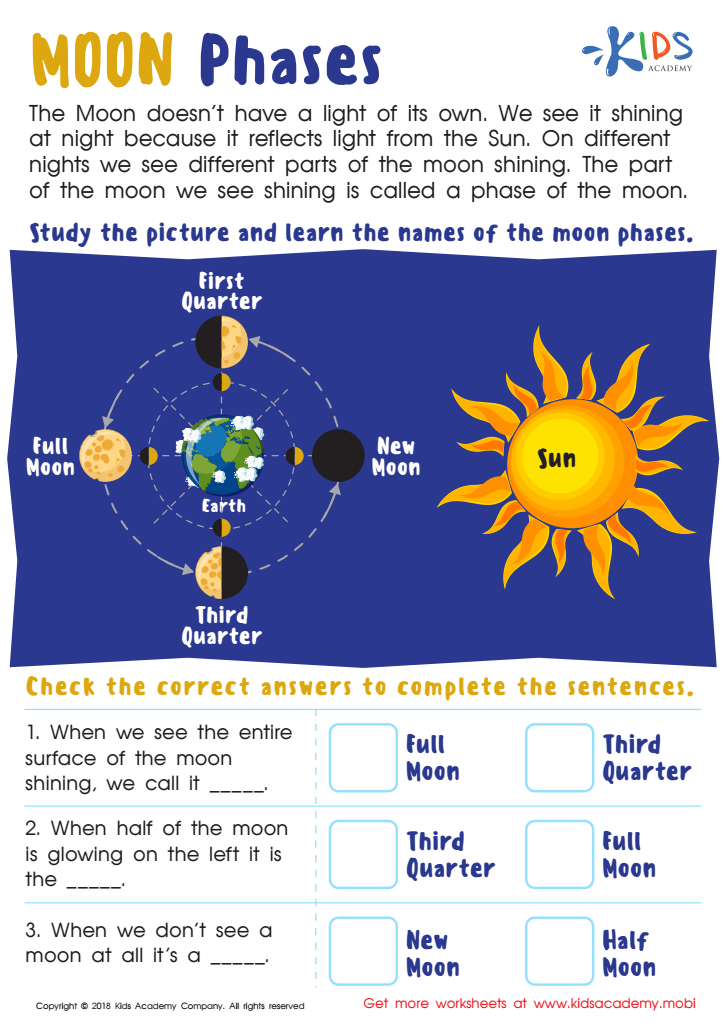

Moon Phases Worksheet
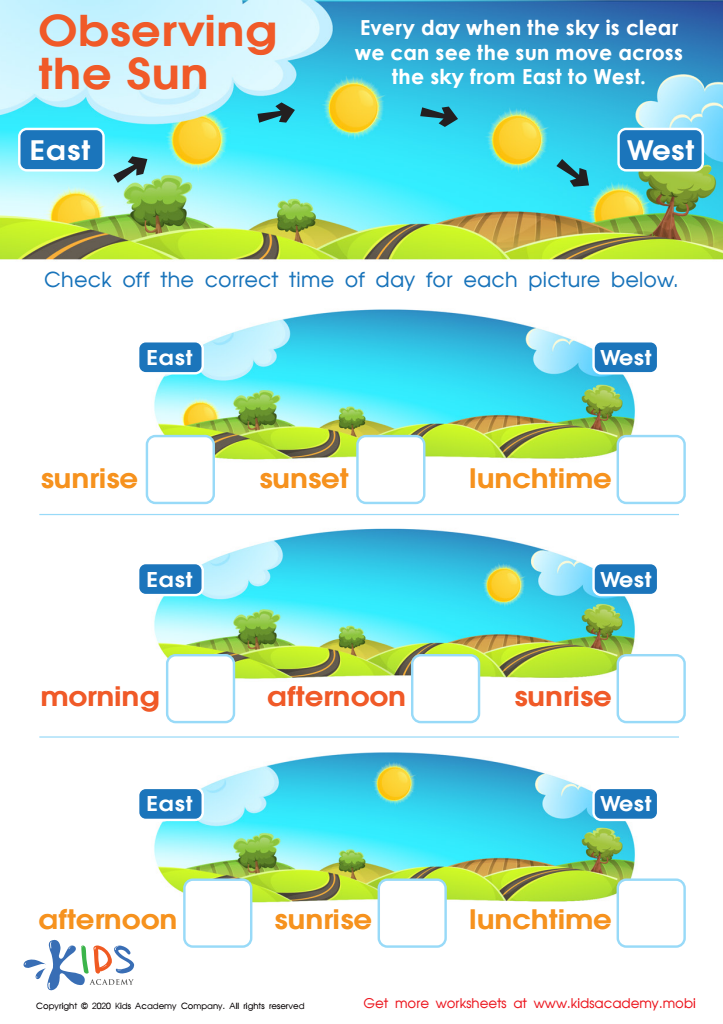

Observing the Sun Worksheet
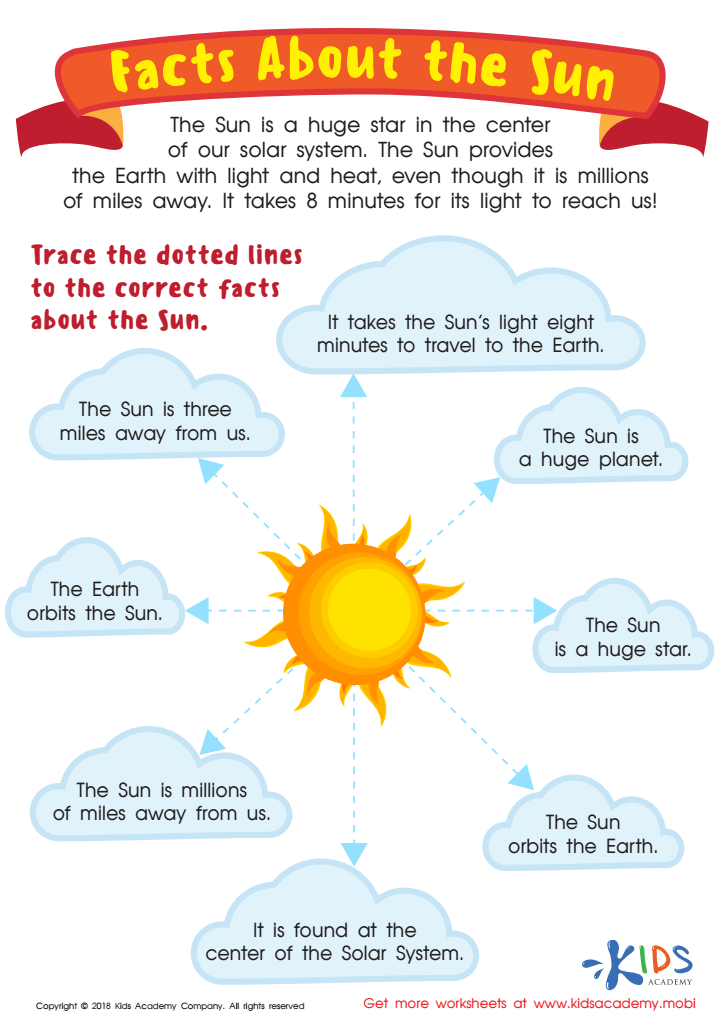

Facts About the Sun Worksheet


Sort and Count to the Moon Worksheet
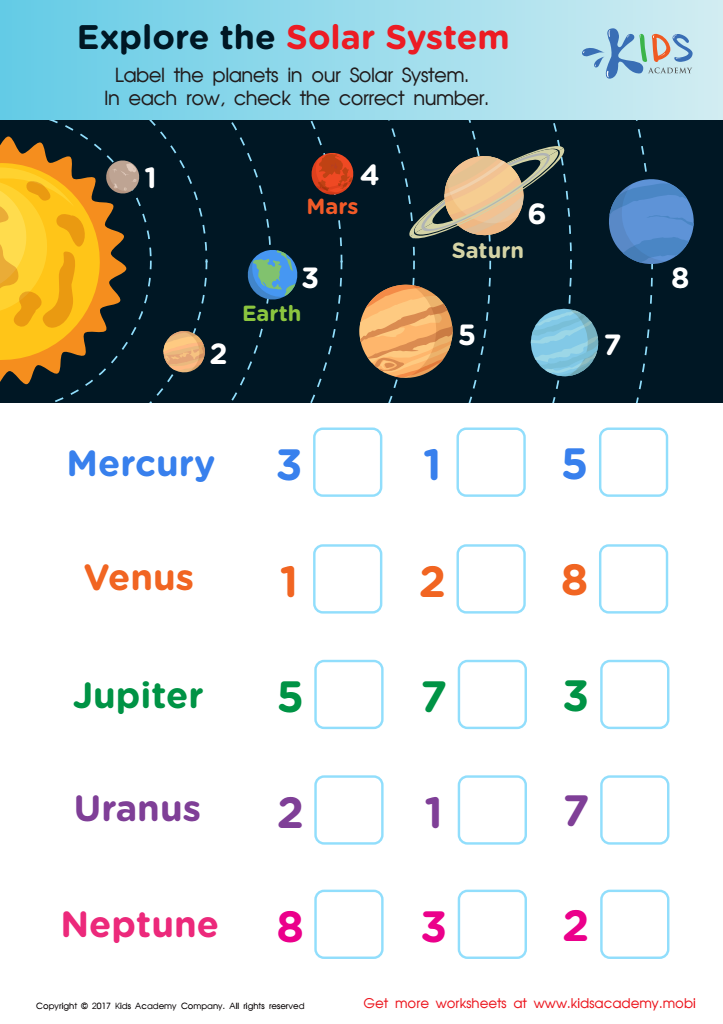

Solar System Planets Worksheet
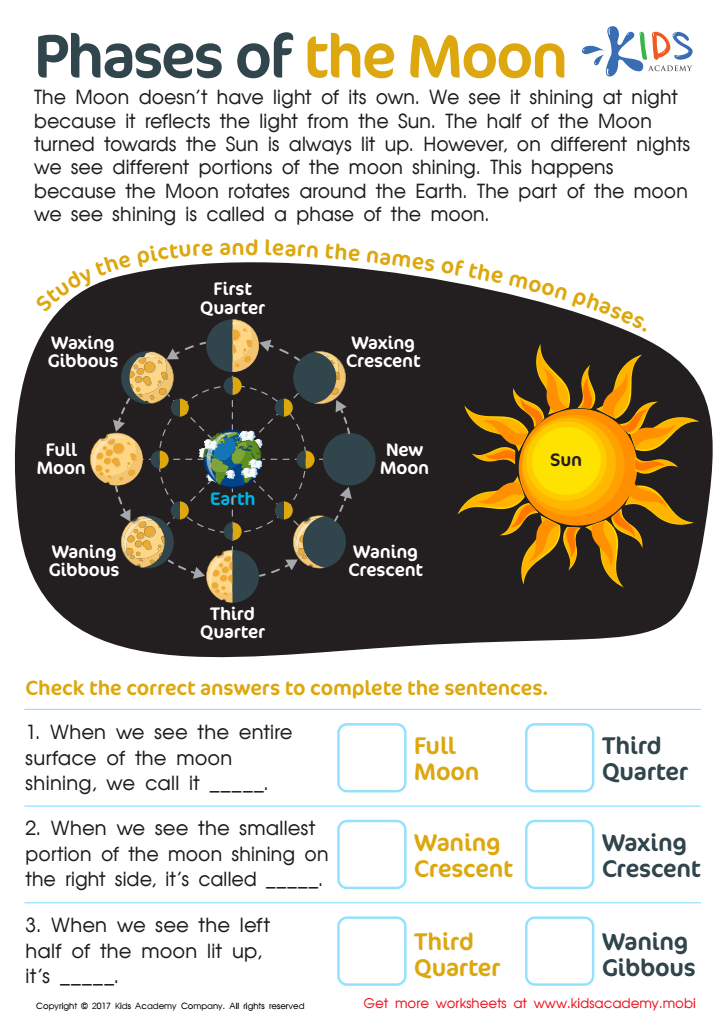

Phases of The Moon Worksheet
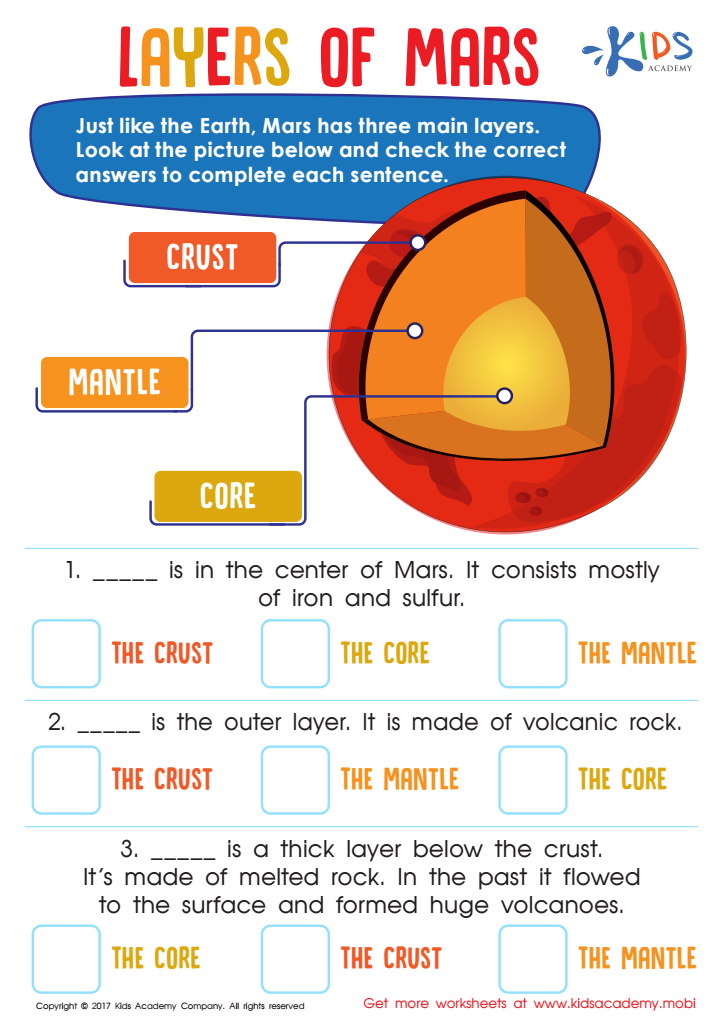

Layers of Mars Printable Worksheet
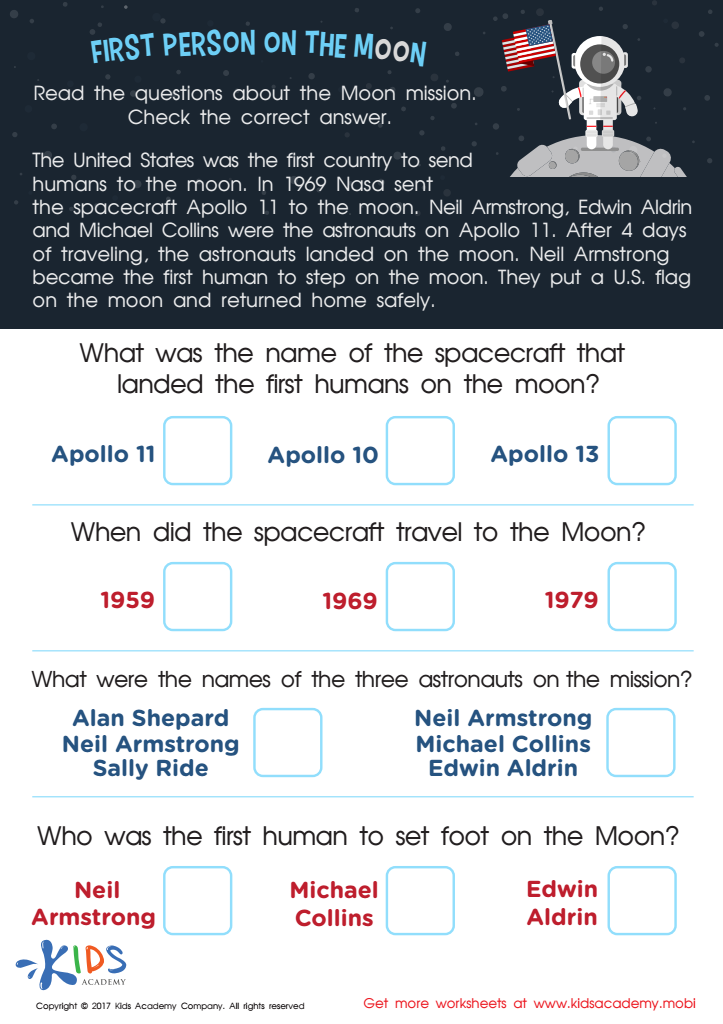

First Person on the Moon Worksheet
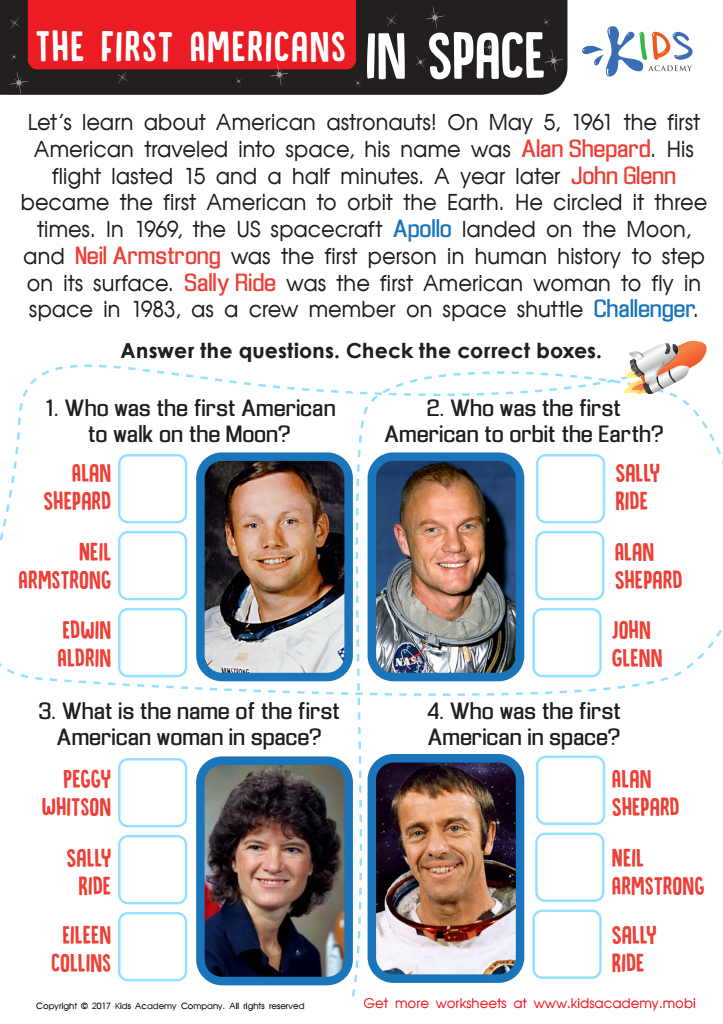

First Americans in Space Worksheet
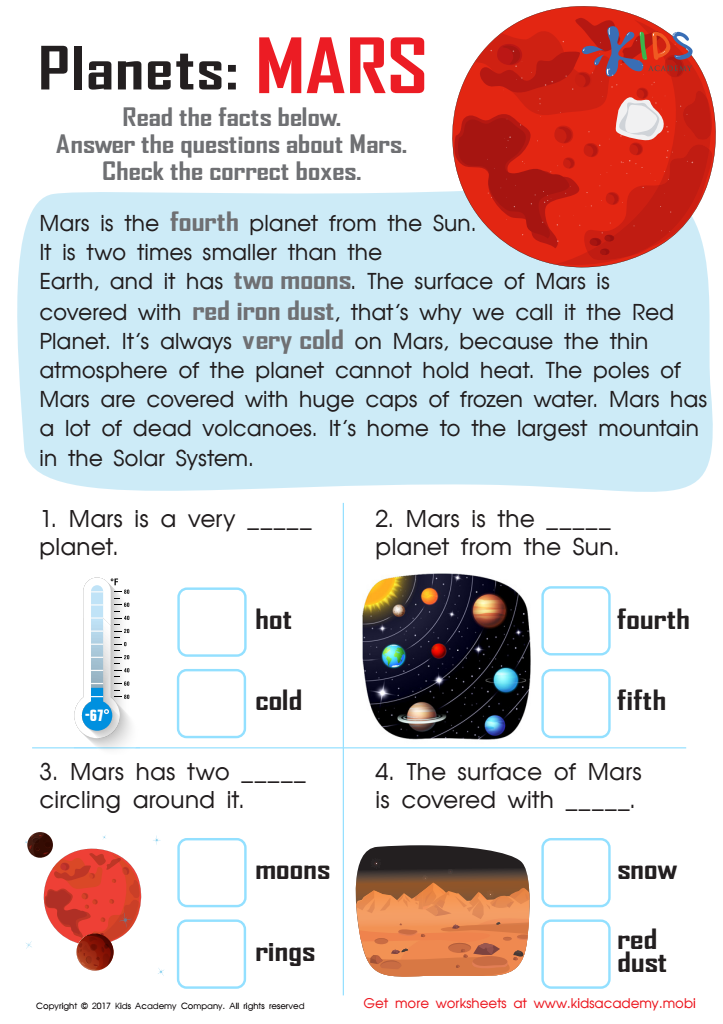

Mars Fact Printable Worksheet
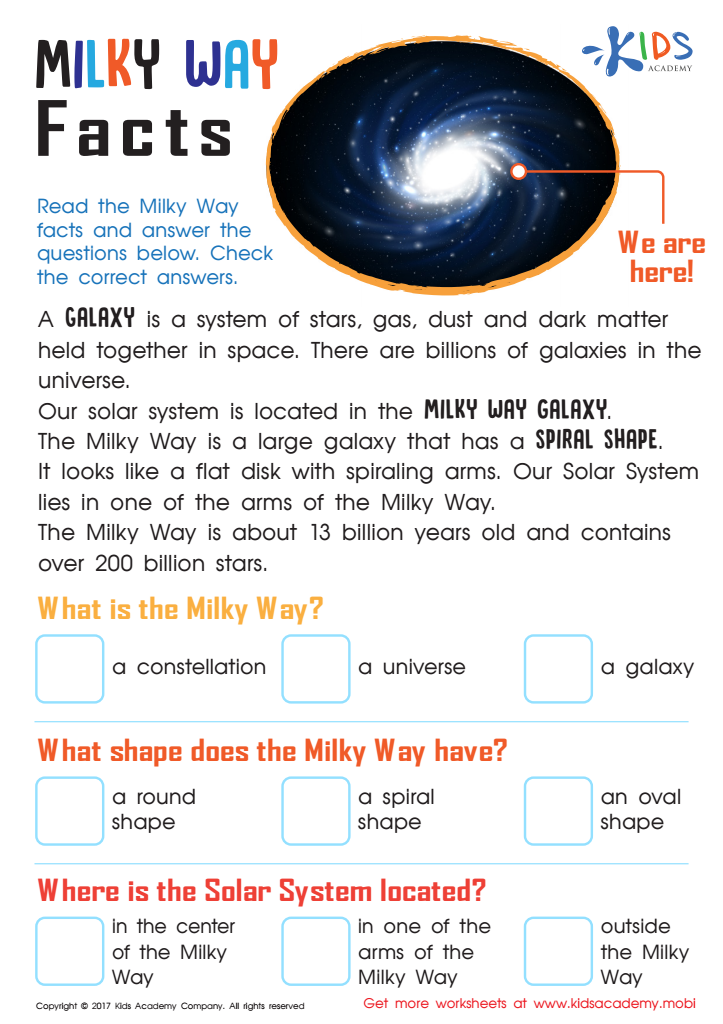

Milky Way Facts Worksheet
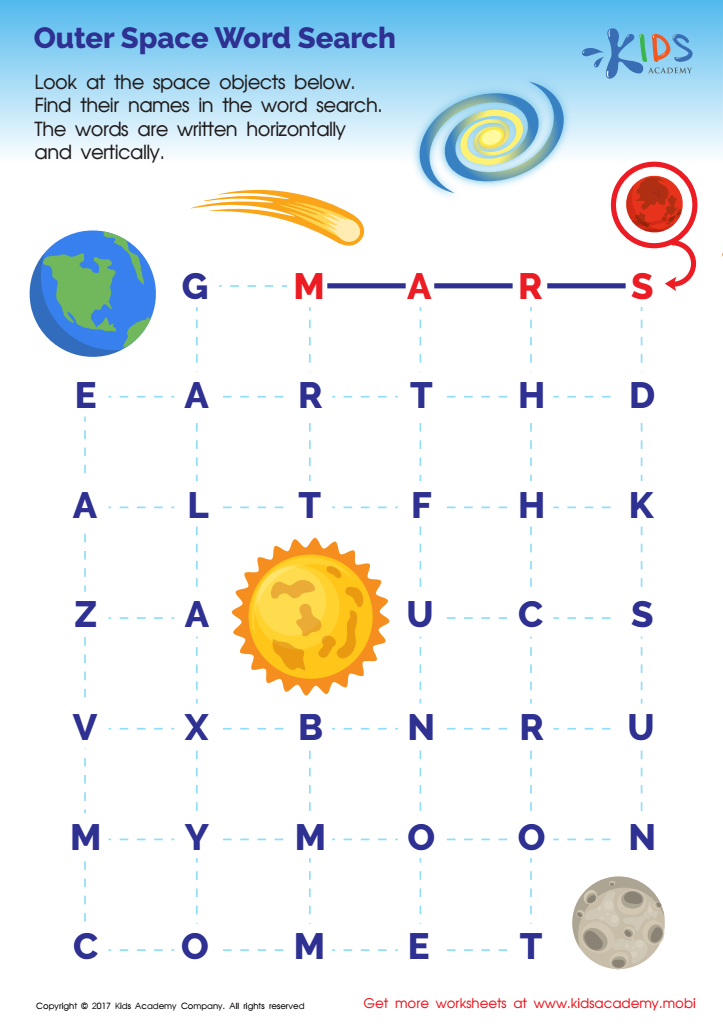

Outer Space Word Search Printable
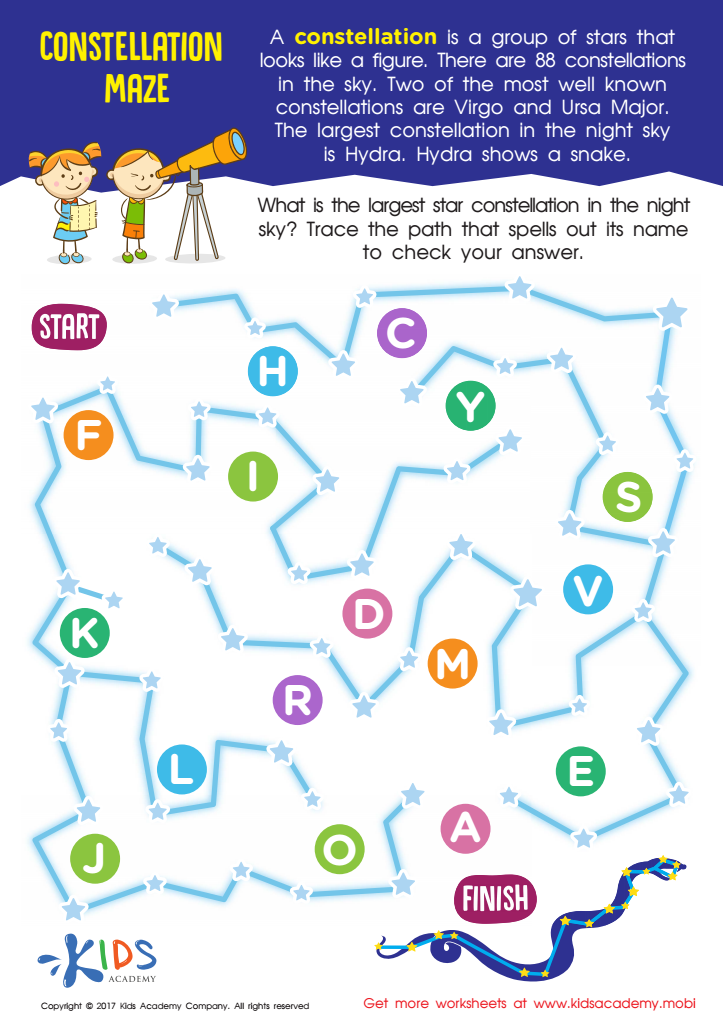

Constellations Worksheet
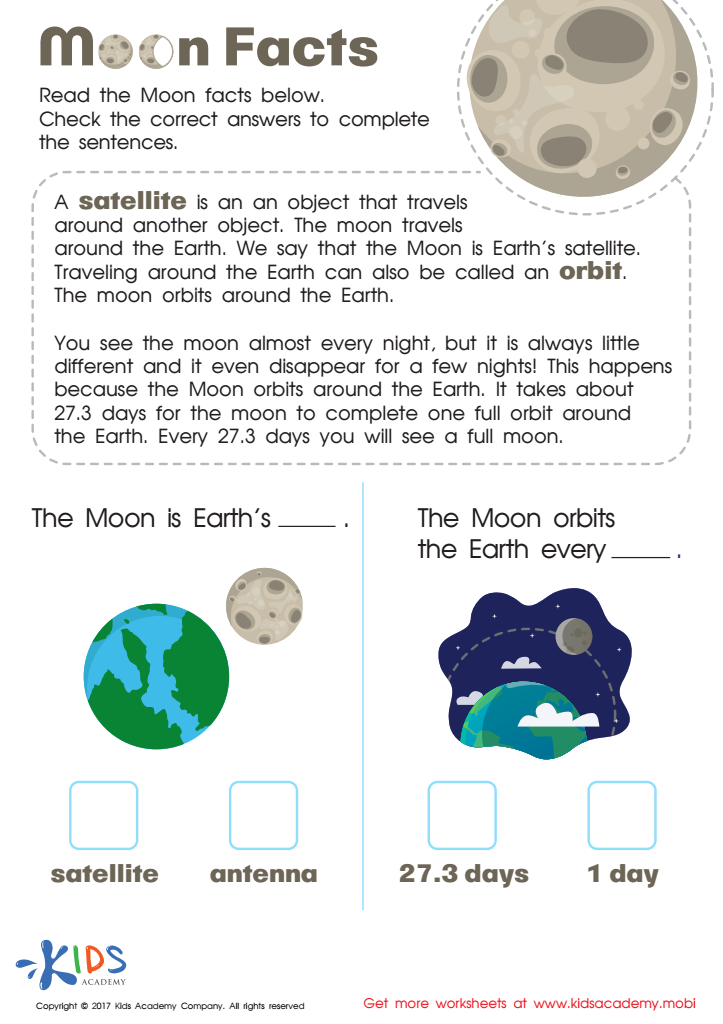

Moon Facts Worksheet
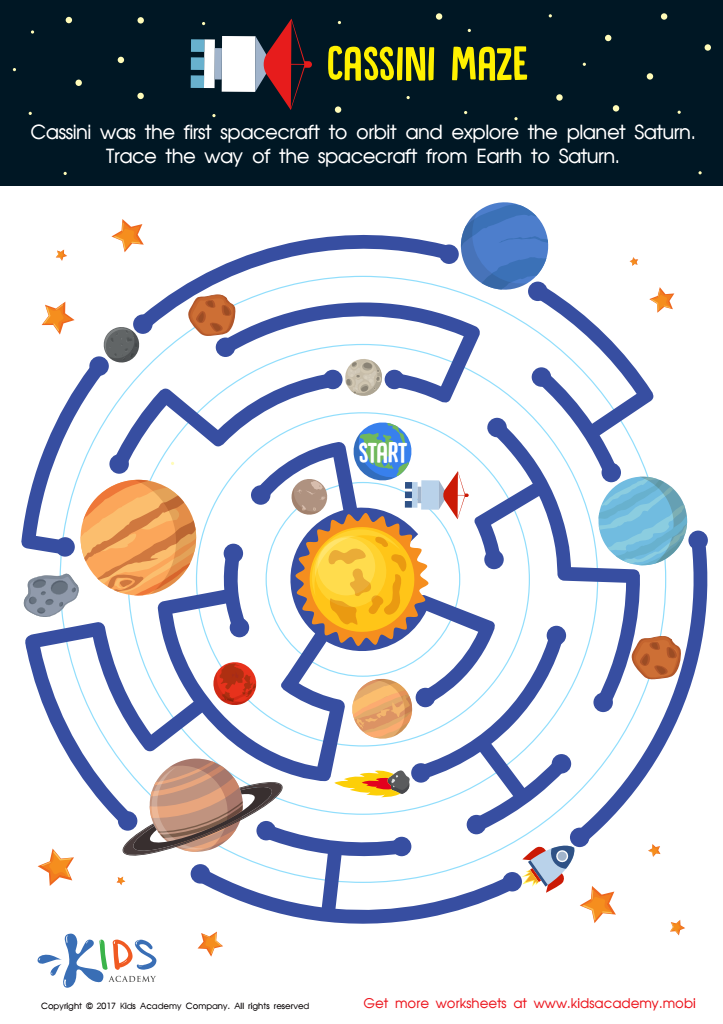

Cassini Printable Worksheet
Normal Space for Ages 6-8 is a vital program that fosters children's overall development during a crucial stage of their growth. At this age, children are not only learning academic skills but also developing social, emotional, and cognitive abilities. Normal Space provides a safe, inclusive environment where they can explore, experiment, and learn to express themselves creatively. It builds essential life skills, such as teamwork, communication, and problem-solving, all of which are critical for success in school and beyond.
Parents and teachers should care because this program enhances self-confidence and encourages curiosity, which are foundational for lifelong learning. Incorporating playful learning into everyday experiences helps engage young minds and makes education enjoyable. As children interact with peers, they learn empathy, respect, and the importance of diverse perspectives—key components of emotional intelligence.
Additionally, Normal Space emphasizes the importance of a balanced development approach, addressing not only academics but also the arts, physical activities, and emotional wellness. Supporting this initiative ensures that children receive a well-rounded education, preparing them for future academic challenges and enabling them to thrive as responsible, socially-aware individuals. Ultimately, this investment in young children's development has far-reaching benefits for families and communities.

 Assign to My Students
Assign to My Students









%20(1).jpg)












